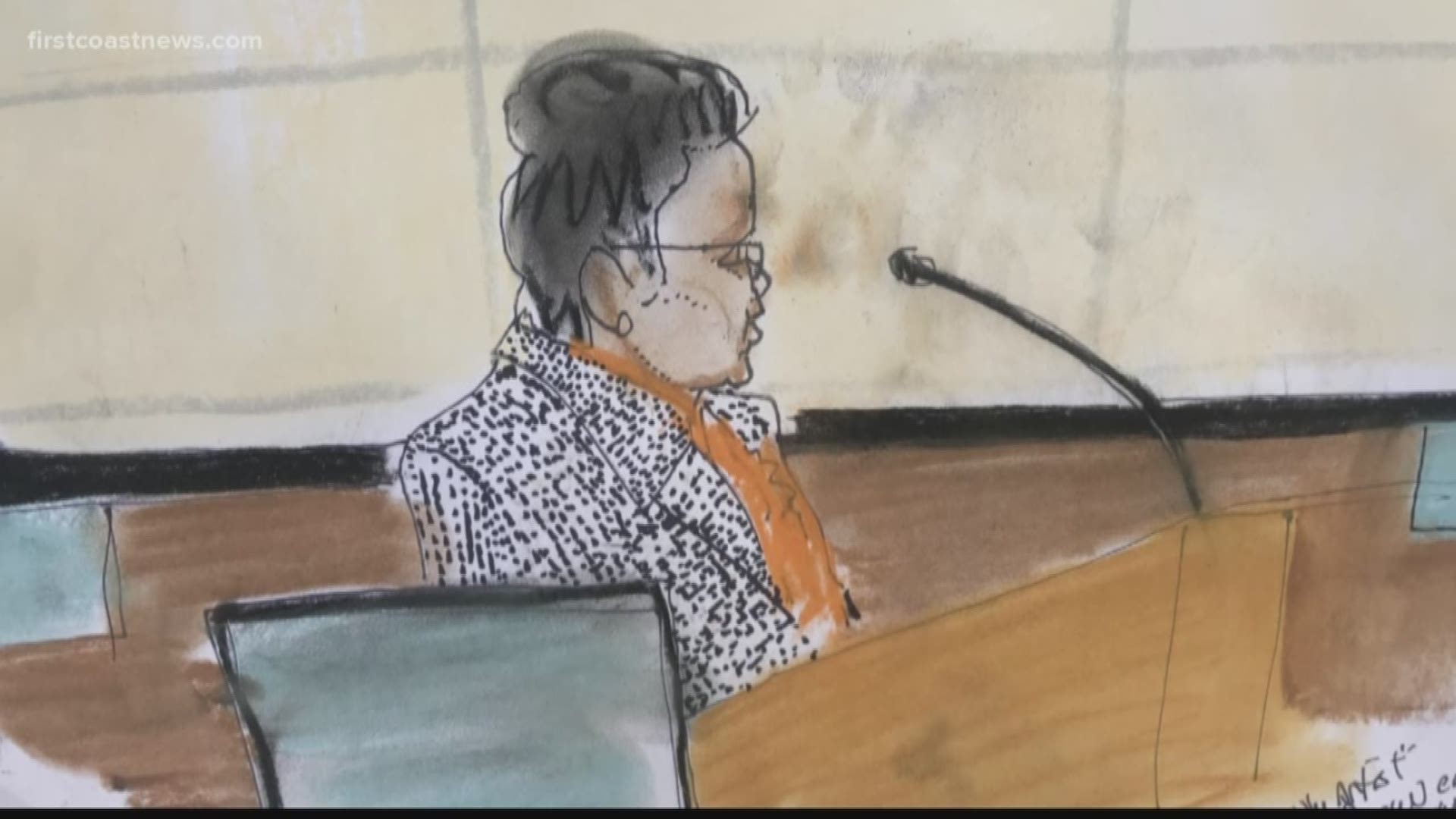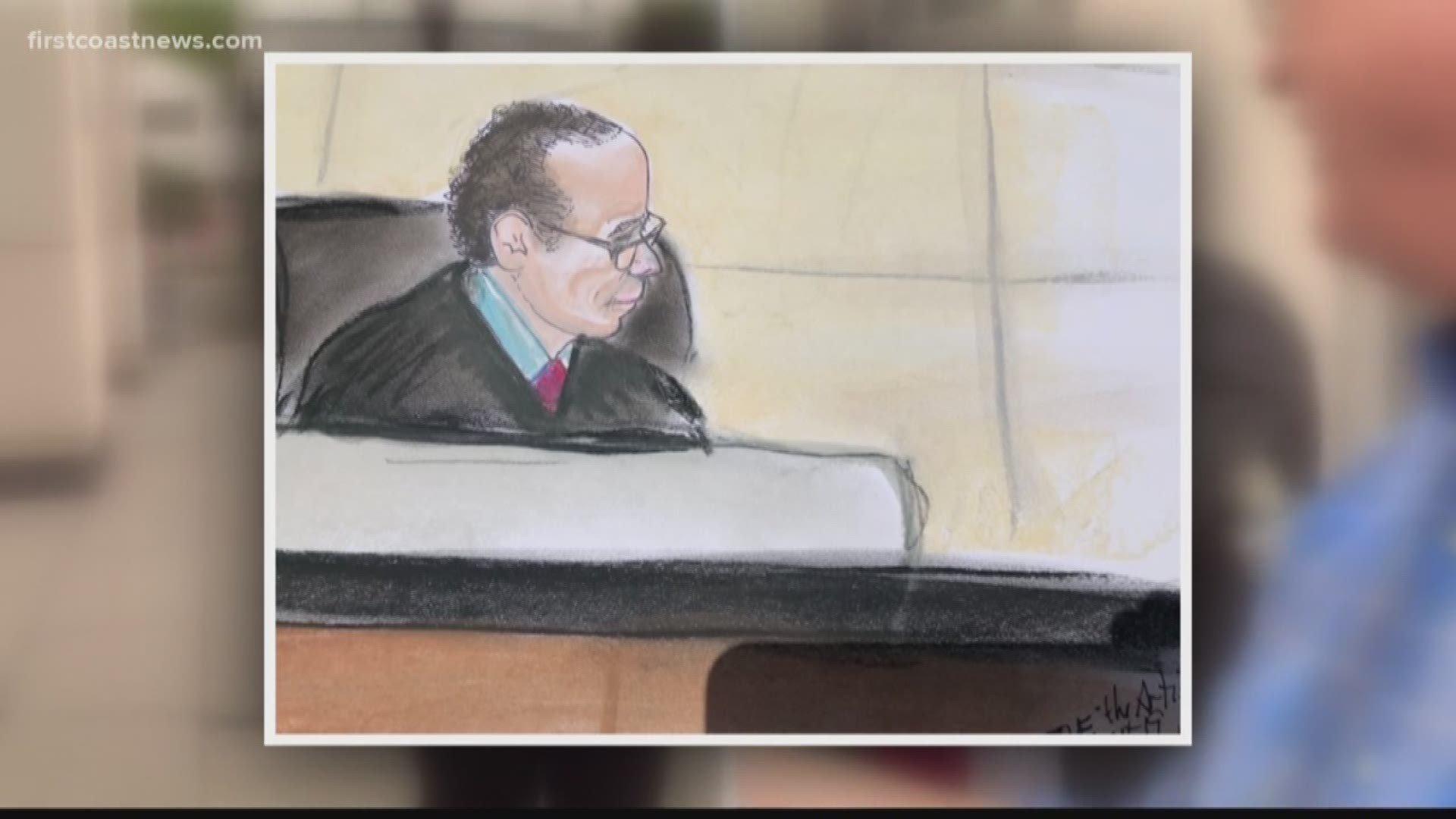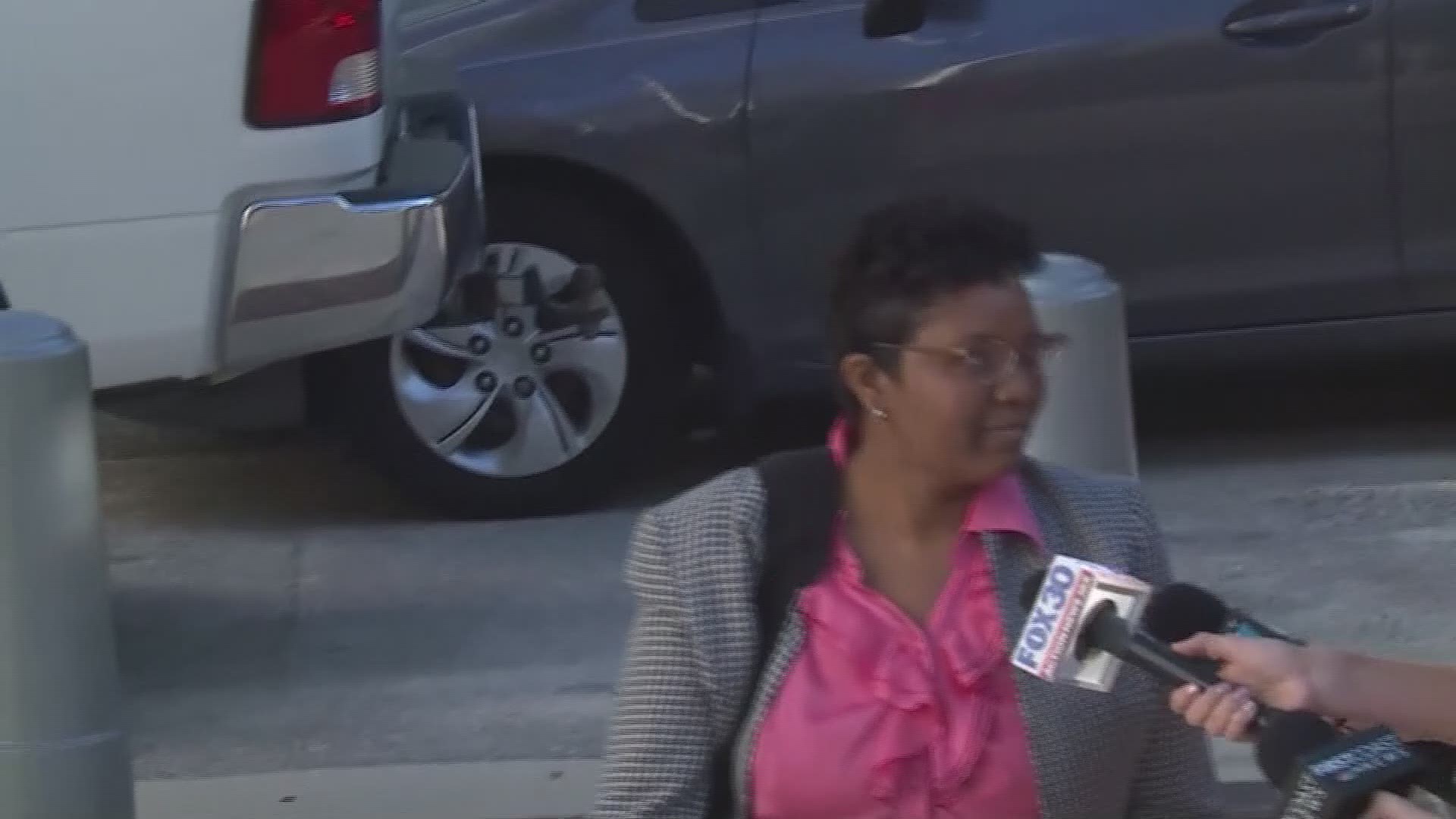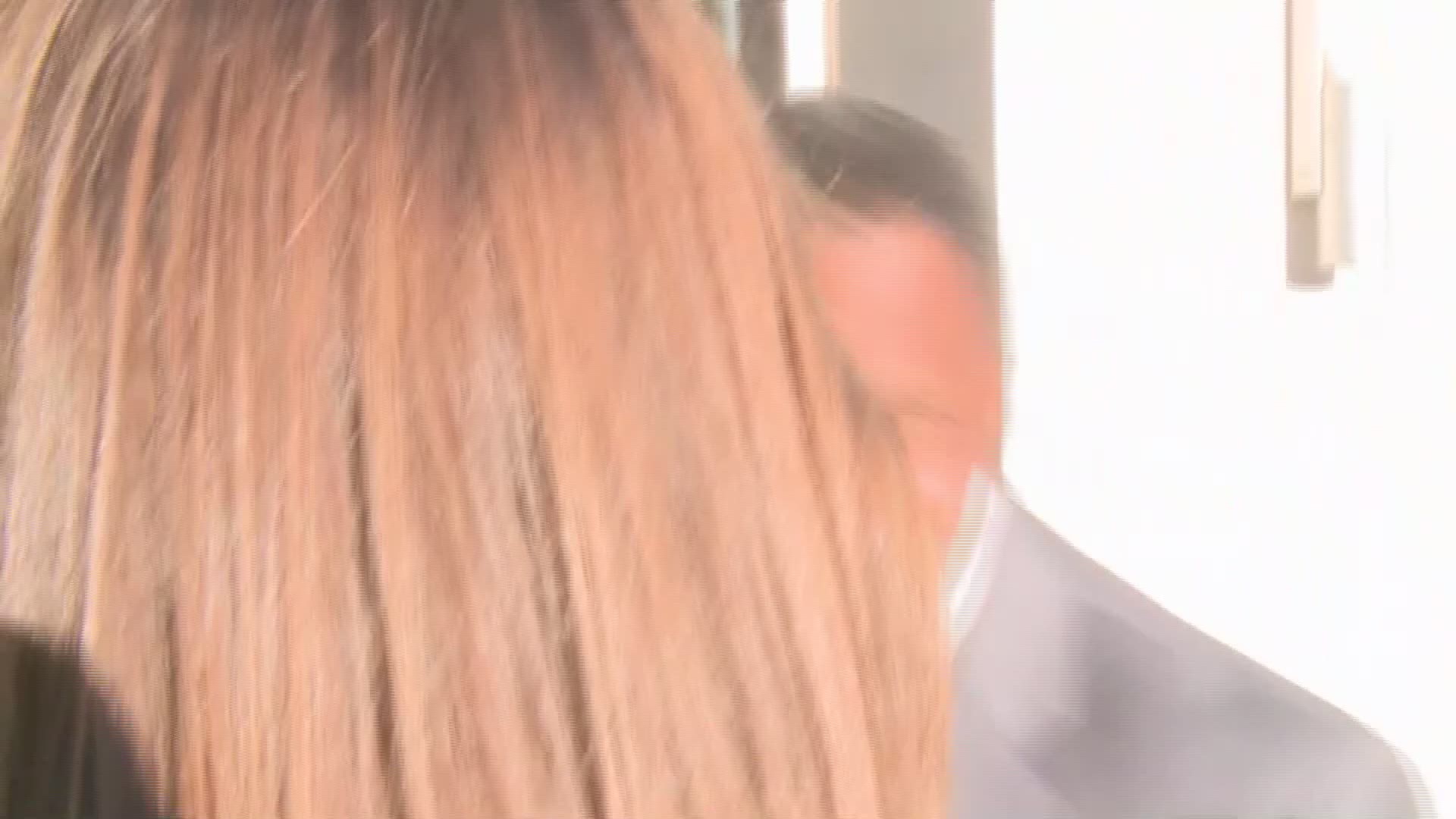** First Coast News will be bringing you coverage of the trial daily. For a list of major day-by-day highlights, scroll to the bottom of this page.
It was the moment that observers have waited for, and some lawyers have dreaded; watching a defendant in a federal criminal case represent herself at trial.
Katrina Brown addressed jurors for the first time in a prepared speech that focused primarily on the history of her family’s barbecue sauce business and her efforts to help her father’s sauce empire expand.
Without getting into specifics, she told jurors she did not engage in fraud, adding “Katrina Brown did the best she could.”
Katrina Brown and Reginald Brown were indicted in May of 2018 by a grand jury on counts of conspiracy, mail and wire fraud. Together, they face 38 counts.
The charges stem not from their city work, but from $3.2 million in loans and grants given to Katrina Brown’s failed family barbecue sauce business.
The money was intended to support a factory expansion that was supposed to create 56 manufacturing jobs in Northwest Jacksonville.
No jobs were ever created.
Federal Prosecutor Tysen Duva told Jurors that Katrina Brown hoped to use her family business as a springboard for her political career. And when that business began to fail, he said she chose to “resort to fraud lying and deception. “He said she and Reggie Brown conspired to create dummy invoices and submit them for reimbursement saying that “it was all a bunch of lies”
“This is not a case about running a business poorly or bad business decisions or bad business acumen," Duva said."This is a case about fraud.”
Reginald Brown’s lawyer Thomas Bell said that his client was not knowingly involved in the fraud and was deceived by Katrina Brown’s charisma and apparent success.
“Reginald Brown had no knowledge that she submitted false invoices to the lender,” Bell said.
According to Bell, Reggie Brown plans to testify in his own defense.
Prosecutors warned jurors the trial would involve lengthy and complicated bank records that can sometimes be “dizzying.”
But he asked for their attention in a trial that he said would last 6 to 7 trial days.
DAY ONE HIGHLIGHTS:
(There are no tweets allowed from inside the courtroom. First Coast News will update this story during official breaks.)
- FBI special agent Angela Hill ran through several instances of what prosecutors say are phony invoices submitted to the bank handling the federal SBA loan for the Brown family barbecue business. In each case, the invoices were submitted, reimbursement was provided and the money deposited. In each case, cash withdrawals quickly followed, often in the same or similar amount of the deposit.
- Two names that surfaced several times Monday – Tommy Hogan and Vandaren Gantt – are both expected to testify for the government. Prosecutors say the men will testify they submitted phony invoices at Katrina Brown’s request and did not perform the work that Brown sought reimbursement for. For instance, prosecutors allege Gantt submitted a phony invoice in October 2013, claiming he needed to be reimbursed for $6,083 worth of office furniture. The government says no furniture was provided and that Gantt will admit that when he testifies.
- Katina Brown also questioned Agent Hill, the first witness she cross-examined. Her questioning was forceful but brief, focusing on whether there was furniture in the barbecue warehouse, and whether FBI attempted to verify if it was the same furniture on the V.C. Gantt invoice.
- Thomas Bell continued questioning Hill as of the court’s late afternoon break, focusing on the marginal role he said his client played in any fraud scheme. He noted the fees to incorporate the two businesses in Reginald Brown’s name were paid by Katrina Brown.
- FBI special agent Angela Hill testified about the documents in the case – the loan and grant agreements that made up the $3.2 million in city and federal dollars earmarked to help the Brown family barbecue business expand. Hill showed how money moved from Katrina Brown’s federal-backed loan account to Reggie Brown’s business bank accounts, where they were typically followed by cash withdrawals of similar amounts. Her testimony also revealed the scope of the investigation, including an email subpoenaed that captured her communications with her Small Business Administration loan manager.
- Prosecutors warned jurors the trial would involve lengthy and complicated bank records.
- U.S asst. attorney Tysen Duva says in an opening statement, “...This case is not about a failing business, poor decisions, but about fraud.”
- Reginald Brown’s lawyer Thomas Bell said that his client was not knowingly involved in the fraud and was deceived by Katrina Brown’s charisma and apparent success.
- Katrina Brown addressed jurors for the first time in a prepared speech that focused primarily on the history of her family’s barbecue sauce business.




